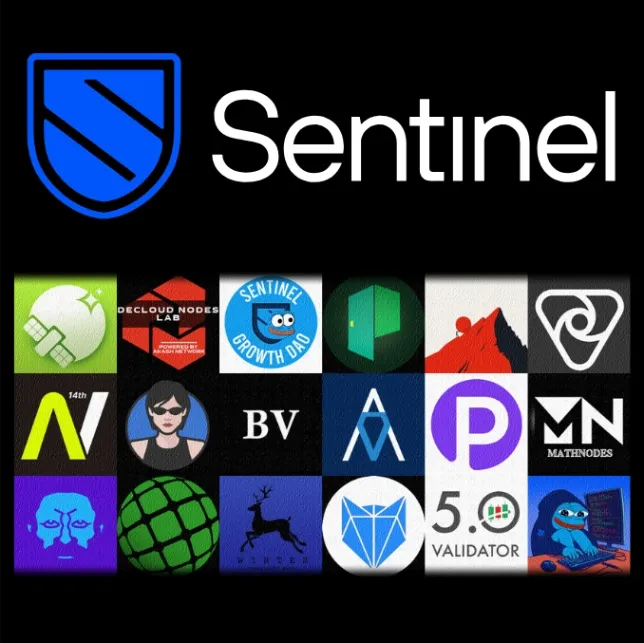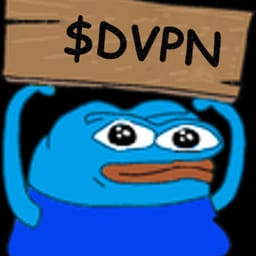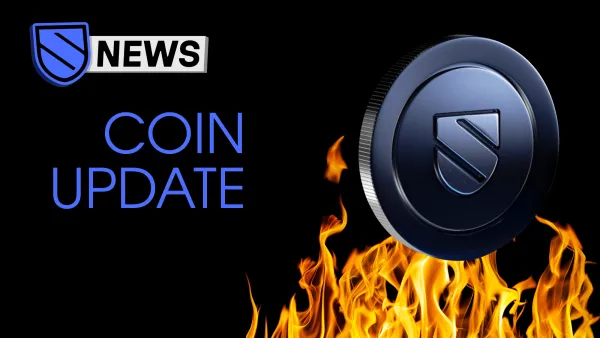Sentinel Validator Set Continues to Swell in Numbers and Talent

Validating Sentinel is a serious business—and it's getting more serious.
As of this article's publication, new Sentinel validators require at least 13.6 million DVPN Coins to enter the active set—roughly $37,000 USD or €34,000 EUR at the current DVPN market price. This is a stark contrast to the state of the validator set at the start of 2023—and even moreso to peak "crypto winter" in 2022.
The bear market saw a swathe of departures that briefly led to multiple slots in the active set being left completely vacant. In theory, a new entrant during that short-staffed period could have started validating blocks on the chain by bonding only 1 DVPN.
It was not to be an issue for long, as Sentinel entered its ongoing renaissance shortly thereafter. New products and skyrocketing network usage brought many eyes in the Web3 world back to the project; and the team and community began a concerted effort to refresh the validator set with new offerings operated by Sentinel contributors and enthusiasts.
In large part due to those two factors, the figure required to enter the active set increased to 3.6 million DVPN by the beginning of June 2023. Now over half a year later, it's almost four times that—and it's growing even more with each passing week.
The Newcomers
The significance of this new crop of validators is not their quantity or the depth of their pockets—it's their background.
Since the end of the explosive 2021–22 bull market, new validators on the Sentinel chain have increasingly been ones with deep ties to the project and its community. That is a departure from the venture capital funds, separate crypto projects, Cosmos influencers, and multi-asset staking platforms that used to dominate the active set. By their nature, entities of those sorts cannot usually dedicate much time and attention to individual projects, nor play a significant public role within individual project communities.
The bulk of new additions to the validator set (in contrast to the old) tend to be development teams, interest groups within the project, prominent members of the various Sentinel communities, node operators, and other contributors.
Additions to the validator set that were sourced from within the Sentinel community over the past six months alone include:
- Busurnode (February 20th), run by a community member called Yovan, who maintains a live directory of residential nodes for his fellow node operators and hosts dozens of his own nodes in over thirty-five countries.
- Bitveil (February 20th), an Italian Web3 consulting and development team consisting of a trio of active Sentinel community members called Nastor, DarioB, and Mullet. Nastor in particular is a co-creator of the Sentinel Python development kit, which he created in tandem with...
- Tkd-Alex (December 7th), the eponymous validator of an Italian developer also responsible for the creation of the NodeSpawner utility and many contributions to Meile dVPN.
- RoomIT (November 29th), a node operator and administrator of Sentinel's Indonesian community.
- Avril14th (October 15th), run by a trio of members from Sentinel's Italian community, much like Bitveil.
- The Sentinel Growth DAO's validator was founded on September 14th of last year, primarily to stake Sentinel's community fund.
This sample represents only a fraction of the diverse range of talented individuals and groups that have decided to serve Sentinel by opening validators during this bear market. Two contributors to this web site (Trinity Validator and Foxinodes) also both founded validators within the past year. The powerhouse validators of whitelabel developers like MathNodes and SOLAR Labs would also be unfamiliar to a DVPN staker of 2021—as strange as it may seem now that we're so used to those names.
What is a Validator?
Validators are responsible for validating blocks and transactions on proof-of-stake (PoS) blockchains. Stakers of the DVPN Coin will be familiar with validators as the entities to which they delegate their staked assets and voting power. Due to their crucial roles in both governance and enforcement of rules and protocols, validators could be best thought of in layman's terms as a blockchain's senate or legislature.
How to Become a Sentinel Validator
A step-by-step guide to creating a Sentinel validator is available at the Sentinel documentation website.

Anybody can become a Sentinel validator, but some technical expertise and a rudimentary knowledge of Linux systems is recommended.
If you aren't able to bond at least 13.5 Million DVPN Coins to your validator, it won't be part of the active set and therefore can't earn rewards for you or your delegators. However, if that hefty initial investment isn't within your means, there's still hope! Finding ways to contribute to the project and appeal to the community may attract enough delegations to make your validator active. The Sentinel team also has a well-established track record of delegating to small validators that they notice making a difference for the project.
If you want advice or help, don't hesitate to reach out to another Sentinel validator in any of Sentinel's numerous online communities. The active set may be competitive; but most validators are primarily concerned with the welfare of the project first and foremost, and are happy to help anybody that shows the same passion for it that they do.
Join Our Journey
At dVPN.news every member of the Sentinel community is a contributor. Whether you're writing articles, sharing tutorials, or participating in discussions, your involvement is what drives our collective growth, and best of all it's rewarded! Together, so if you to contribute to the growth of the Sentinel Network, you are in the right place!

Connect with Us
Stay in touch and be part of our growing community:
- Follow Sentinel on X (Twitter)
- Follow The Growth DAO on X (Twitter)
- Join The Growth DAO community Telegram Group






